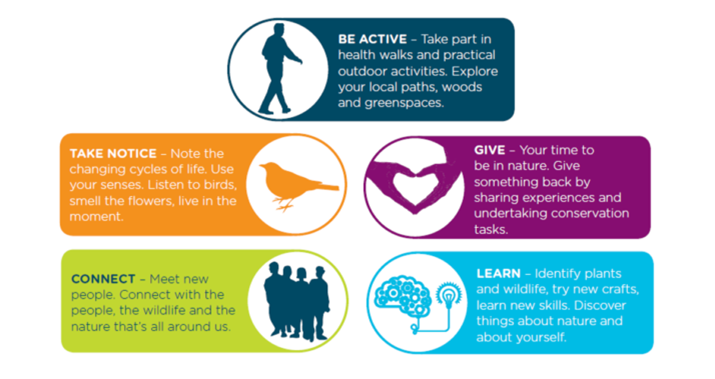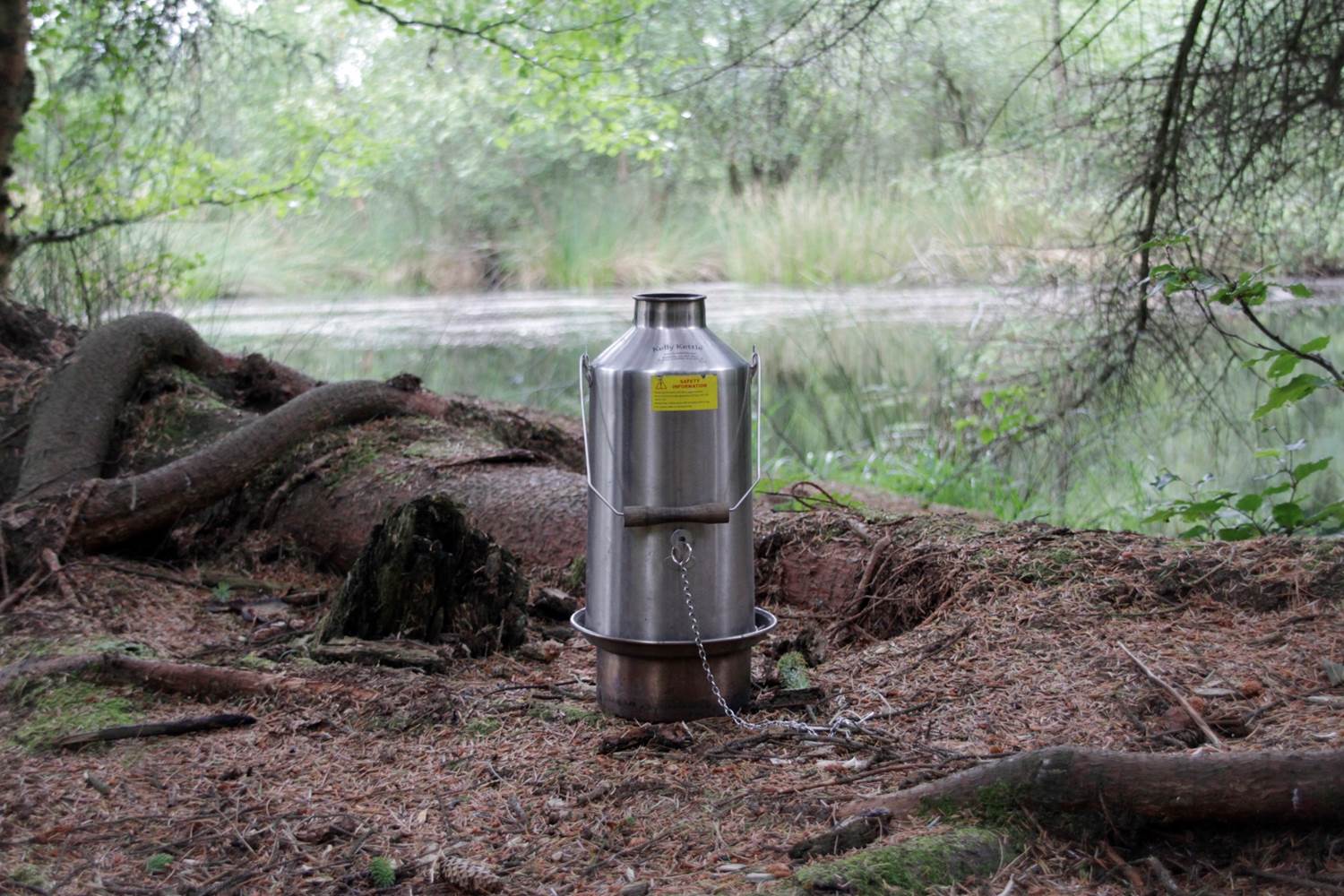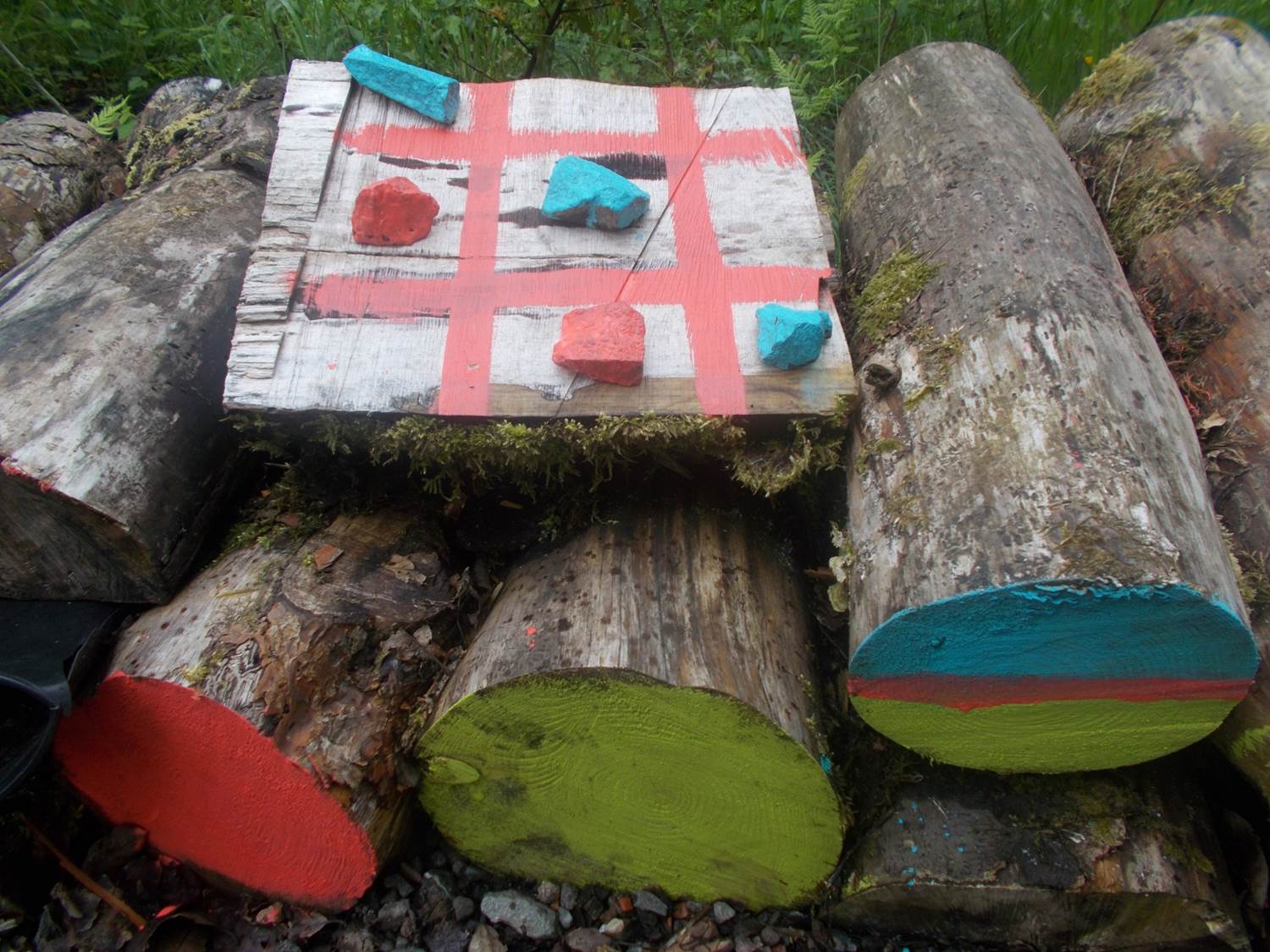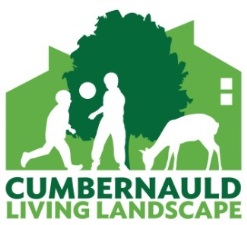Case Study
Creating natural connections in Scotland: the Wild Ways Well project
Contact name
Paul Barclay
Institution name
Cumbernauld Living Landscape
Region & country
North Lanarkshire, Scotland
Summary
The Wild Ways Well project aims to demonstrate what most of us already know instinctively – spending time in nature makes people feel better.
In the Scottish new town of Cumbernauld, this project is using an internationally recognised wellbeing framework called the Five Ways to Wellbeing, and adapting it for the outdoors.
Wild Ways Well aims to get people suffering from, or at risk of, poor mental health out into their local greenspaces. Whilst out amongst the trees, parks and reserves, participants get a chance to slow down, relax, enjoy being in the company of other like-minded people, and participate in a variety of environmental and conservation related activities designed to fit in with the Five Ways to Wellbeing.

The Wild Ways Well, from 5 Ways to Wellbeing
Cumbernauld Living Landscape

Wild Ways Well - kelly kettle
Cumbernauld Living Landscape

Wild Ways Well - woodland game
Cumbernauld Living Landscape
Background of the project
Issues surrounding poor mental health are on the rise and affect all age groups and areas of society. Poor mental health destroys lives and blights communities. There is still a stigma attached to this issue, with people reluctant to admit they are sufferers and to engage with traditional forms of support.
Despite being rich in nature, perceptions of Cumbernauld, from both within and without, are of it being highly urbanised and lacking green infrastructure.
The project engages the target groups in outdoor activities in local greenspace, and in doing this, it addresses the need to:
- highlight the connections between lack of exposure to nature and poor mental health
- persuade people of the benefits of this approach to their own health and the value of greenspaces to their community.
Solution and actions taken
The project works to:
- enable members of the community to use local greenspaces for the benefit of their mental wellbeing.
- use a person focussed approach to differentiate from traditional green volunteering.
- change the perception of the town’s greenspaces which are underused and underappreciated within the community, and create positive associations between people, communities and nature.
- give people and organisations the tools and knowledge to maintain their engagement.
The project worked with local services, agencies and third sector organisations to identify those most in need and offered a range of engagement routes to make the service offered as wide ranging and accessible as possible.
A variety of Wild Ways Well groups were formed to work with different sections of the population. The groups (for people aged 18 and over) meet regularly, usually for a 12 week programme, and participants are involved in choosing what activities they do and where.
Other institutions or parties involved
The project is part of the Cumbernauld Living Landscape initiative, part of which promotes green health and wellbeing.
The partners include: Scottish Wildlife Trust, The Conservation Volunteers (TCV), James Hutton Institute, North Lanarkshire Council, Sanctuary Scotland
Results
Participants reported increased knowledge and use of greenspaces within the town, as well as increased confidence and decreased anxiety levels.
Feedback from participants, health workers and third-party staff was consistently excellent. In particular, retention levels were high within the groups.
Several hundred individuals and a variety of different organisations took part at different levels.
A high number of participants moved onto other positive destinations.
Challenges
There has to be a willingness to invest for long term benefit, innovate and take some risks.
There is still stigma around the term ‘mental health’ particularly among the young.
Lessons learned
There has to be a level of support (not necessarily financial) from local health services and local government.
Staff and organisations have to be empowered to remain people focussed and prioritise genuine care and compassion.
The project must work to create and maintain a high profile.
The project must have a degree of longevity to receive support from frontline health staff.
Other resources
Contact name
Paul Barclay
Institution name
Cumbernauld Living Landscape
Website(s)
